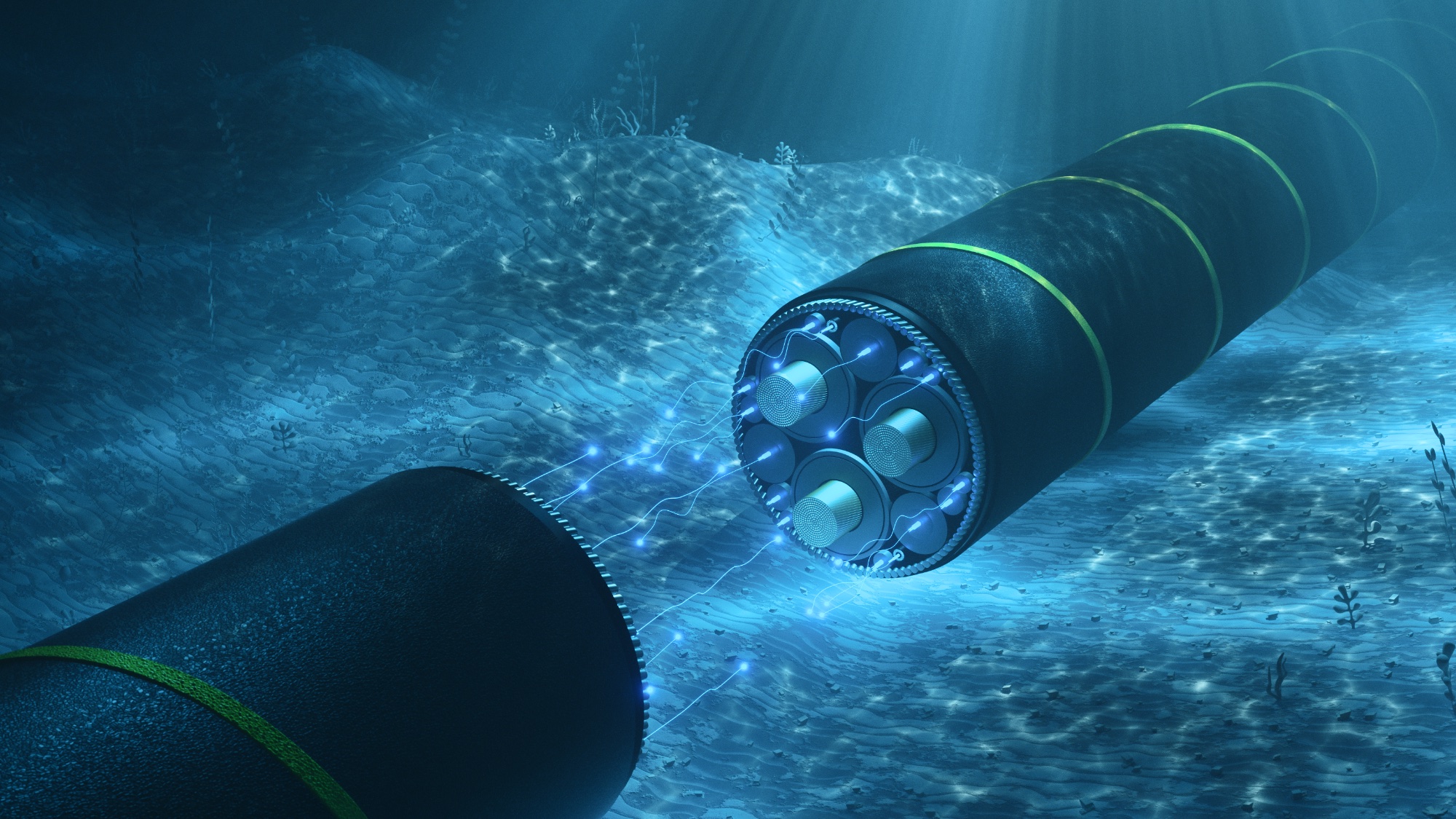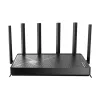Undersea internet cables to Europe cut — Chinese ship suspected
Two cables cut within 24 hours

Two fiber-optic undersea internet cables connecting Scandinavia to mainland Europe were severed within 24 hours of one another. European officials suspect the cuts are a sign of sabotage.
The cables connected Finland to Germany and Lithuania to Sweden were running under the Baltic Sea. According to CNN, while damage to submarine cables does happen, it is rare.
EU officials do not believe this was accidental.
"Nobody believes that these cables were accidentally severed," said German Defense Minister Boris Pistorius. "We have to know that, without knowing specifically who it came from, that it is a hybrid action and we also have to assume that, without knowing by whom yet, that this is sabotage."
Finnish and German foreign ministers released a join statement that reads "the fact that such an incident immediately raises suspicions of intentional damage speaks volumes about the volatility of our times.” They added, “Our European security is not only under threat from Russia’s war of aggression against Ukraine but also from hybrid warfare by malicious actors.”
The immediate leap to accusations of sabotage are more than likely being stoked by reports (Business Insider) from August when Russian officials warned that undersea cables and disrupting the global internet had become a "legitimate target for Russia." At the time, analysts posited that Russia is mapping the undersea cable network. An investigation in 2023 found that Russia was operating a fleet of purported intelligence boats in Nordic waters that was suspected to be targeting wind farms and submarine cables.
Right before the cables were cut the United States government gave permission to Ukraine to use long-range US weapons to attack the Kursk region in its ongoing war with Russia. The AP reported that Moscow issued a warning that the decision would add "fuel to the fire" in a war that is nearing its third year.
Get instant access to breaking news, the hottest reviews, great deals and helpful tips.
A Russian official called any accusations "absurd" and seemed to hint that Ukraine may have sabotaged the cables
China also suspected
Today, a Chinese-flagged cargo shipped dubbed the Yi Peng 3 was provoking interest as the the ship was in the area of both cables around the time they were damaged.
Perhaps a bit too cheekily, the Lithuanian Foreign Minister Gabrielius Landsbergis tweeted, "If I had a nickel for every time a Chinese ship was dragging its anchor on the bottom of the Baltic Sea in the vicinity of important cables I would have two nickels, which isn't much, but it's weird that it happened twice."
If I had a nickel for every time a Chinese ship was dragging its anchor on the bottom of the Baltic Sea in the vicinity of important cables I would have two nickels, which isn't much, but it's weird that it happened twice.November 20, 2024
The Yi Peng 3, departed the Russian port of Ust-Luga on November 15, with the suspected cable cutting occuring on November 17. It is supposed to arrive at Egypt's Port Said on December 3rd.
As of this writing that boat is anchored in Danish waters with the Denmark military confirming that they are maintaining a "presence near the vessel." No other details have been released.
In 2023, a fiber optic cable between Finland and Estonia was cut. That incident was blamed on the anchor of a Chinese ship and allegedly also damaged a Russian cable connecting the country to the Kaliningrad enclave, nestled between Lithuania and Poland on the Baltic sea.
At the time, a Finnish minister claimed the damage was done on purpose. "I would think that you would notice that you’re dragging an anchor behind you for hundreds of kilometers," Finland's Minister of European Affairs Anders Adlecreutz said.
Why China might be targeting Nordic countries and telecommunications lines there is mostly up for speculation, hence the more immediate blame being placed on Russia's doorstep.
Disruption
For now, it sounds as though the damaged cables haven't completely altered internet access in Finland or Sweden. Telia Lithuania, which operates the cable connecting Lithuania and Sweden has said that the damaged cable provided nearly a third of the country's internet capacity. That traffic has reportedly been restored. Cinia, which manages the Finland-Germany connection, confirmed a similar status.
Still, NATO allies are working to secure the undersea cables, partially by no longer working with companies that have ties to Russia or China.
Whether or not these cuts were accidental or testing the waters remains to be seen, but it can't be denied that in any war, hybrid or not, disrupting lines of communication is an important factor in gaining the upper hand on opposing forces.
More from Tom's Guide
- Proton and other VPN providers demand Apple return VPNS to Russian App Store
- Ransomware gang claims cyber attack on Federal Reserve
- YouTube is no longer available in Russia without a VPN

Scott Younker is the West Coast Reporter at Tom’s Guide. He covers all the lastest tech news. He’s been involved in tech since 2011 at various outlets and is on an ongoing hunt to build the easiest to use home media system. When not writing about the latest devices, you are more than welcome to discuss board games or disc golf with him. He also handles all the Connections coverage on Tom's Guide and has been playing the addictive NYT game since it released.
 Club Benefits
Club Benefits















